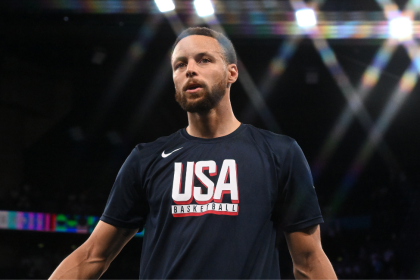The National Football League (NFL) finds itself embroiled in a contentious debate over a short-yardage offensive tactic that has revolutionized goal-line and critical down situations. As team owners prepare to cast their votes on potentially eliminating the controversial “tush push” play, the decision threatens to dramatically reshape offensive strategies for several franchises.
This pivotal ruling comes after increasing pressure from teams struggling to defend against the tactic, which has become a signature element for organizations that have mastered its execution. The upcoming vote represents a significant moment that could alter game plans and player utilization across the league.
The mechanics behind the controversial strategy
The tush push has emerged as a nearly unstoppable short-yardage offensive tactic that leverages physics and personnel in a way that defenses have struggled to counter effectively. The play’s execution relies on a powerful interior offensive line combined with additional pushing force from teammates behind the quarterback.
When executed correctly, the play creates an overwhelming forward momentum that defenses have found nearly impossible to resist in crucial situations. Philadelphia eagles quarterback Jalen Hurts has become particularly associated with the tactic, benefiting from an exceptionally strong offensive line that generates the necessary surge to convert critical downs.
The buffalo bills have similarly incorporated this approach into their offensive arsenal, utilizing quarterback Josh Allen’s substantial frame and strength to execute the play with impressive efficiency. Both teams have demonstrated remarkable conversion rates with this strategy, creating a significant competitive advantage in situations that traditionally favored defenses.
Growing opposition from competing franchises
A groundswell of frustration has emerged from teams that have watched the eagles and bills consistently convert high-pressure situations using this approach. The green bay packers recently voiced their concerns publicly, adding to a chorus of teams questioning whether the tactic aligns with the competitive balance the league strives to maintain.
Statistical analysis reveals a stark disparity in usage and success rates, with the eagles and bills employing the tush push more frequently than all other teams combined. This imbalance has fueled concerns that the strategy creates an unfair advantage based primarily on specific roster construction rather than overall team quality or coaching acumen.
The debate has intensified as more franchises struggle to both defend against and replicate the play’s success rate. Critics argue the tactic exploits a rule loophole rather than representing traditional football strategy, while supporters contend it simply reflects innovative coaching and proper personnel utilization.
Competition committee’s challenging position
Rich McKay, atlanta falcons CEO and veteran member of the NFL competition committee, has acknowledged the delicate nature of potentially eliminating a strategy that predominantly benefits specific teams. The committee faces the difficult task of determining whether the play undermines the competitive integrity of the game or simply represents tactical innovation.
The committee must weigh multiple factors in their recommendation, including player safety considerations, competitive balance concerns, and the precedent set by targeting a strategy associated primarily with two successful franchises. Their decision will significantly influence how team owners vote on the proposed rule change.
McKay highlighted the uncomfortable reality of the situation, noting that any rule change would inevitably be perceived as targeting the eagles and bills specifically. This perception creates additional complexity for committee members attempting to make an objective assessment of the play’s impact on the game.
Potential strategic repercussions of a ban
If team owners vote to eliminate the tush push, several franchises will need to fundamentally reconsider their approach to critical short-yardage situations. The eagles and bills would face particularly significant adjustments, as both teams have incorporated this tactic as a cornerstone of their offensive strategy in high-leverage moments.
The potential ban would impact:
- Offensive play calling in third-and-short and fourth-and-short situations
- Goal-line offensive strategies where the push has proven nearly unstoppable
- Personnel groupings specifically designed for executing this tactic
- Team roster construction prioritizing players who excel in push scenarios
- Quarterback selection criteria for franchises seeking similar advantages
Teams that have invested in personnel specifically suited to execute or defend against this strategy would face immediate challenges adapting to new rules. The ripple effects could influence everything from draft priorities to free agent acquisitions as teams adjust their approaches.
Historical context of tactical rule changes
The NFL has precedent for adjusting rules to address specific tactics that the league determines create competitive imbalances or safety concerns. Previous examples include modifications to downfield blocking rules, chop block prohibitions, and adjustments to pass interference enforcement.
These historical changes provide context for the current debate, though the tush push presents unique considerations. Unlike many previous rule adjustments, the potential ban specifically impacts a strategy that operates within the existing framework of the game rather than exploiting dangerous techniques or creating obvious player safety concerns.
The distinction between innovation and exploitation remains central to the discussion. Determining where the tush push falls on this spectrum represents the core challenge facing the competition committee and team owners as they prepare to vote on its future.
Broader implications for game evolution
The controversy surrounding the tush push reflects larger questions about how football should evolve and what constitutes fair competition. As teams continuously seek advantages through innovative approaches, the league must regularly reassess where to draw lines between strategic creativity and competitive integrity.
This debate highlights tension between allowing teams to maximize their specific personnel advantages and maintaining balanced competition across diverse roster constructions. The resolution will establish precedent for how similar situations are handled as the game continues to evolve tactically.
Beyond immediate strategic implications, the decision may influence coaching approaches to innovation and risk-taking. A ban might discourage creative tactical development if coaches perceive the league as overly restrictive toward successful innovations that do not clearly violate existing rules.
Awaiting the decisive vote
The immediate future of the tush push remains uncertain as team owners prepare for next week’s crucial vote. The outcome will have immediate ramifications for the upcoming NFL season, potentially forcing multiple contending teams to develop alternative strategies for situations where they previously relied on this tactic.
The voting process itself may reveal interesting dynamics between franchises that have mastered the technique and those struggling to defend against it. The required threshold for implementing a rule change ensures that any decision will reflect broad consensus rather than narrow interests.
Regardless of the outcome, this controversy exemplifies the constant evolution of football strategy and the ongoing dialogue between innovation and regulation. The league’s handling of this situation will establish important precedent for addressing future tactical developments that challenge traditional approaches to the game.














